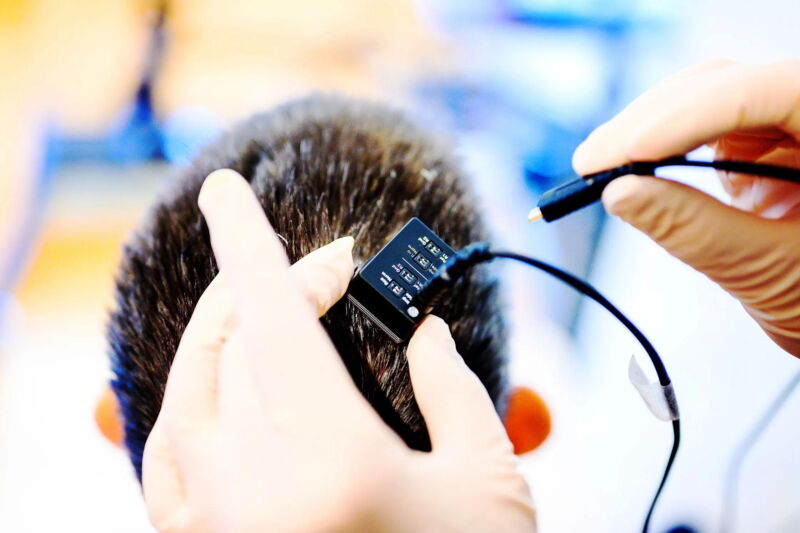AI-powered brain implants help paralyzed patients communicate faster than ever

Enlarge / A researcher connects a pedestal on a study volunteer's head to an external computer. The pedestal is wired to electrodes that rest on the surface of the brain. (credit: Noah Berger/UCSF)
Paralysis had robbed the two women of their ability to speak. For one, the cause was amyotrophic lateral sclerosis, or ALS, a disease that affects the motor neurons. The other had suffered a stroke in her brain stem. Though they can't enunciate clearly, they remember how to formulate words.
Now, after volunteering to receive brain implants, both are able to communicate through a computer at a speed approaching the tempo of normal conversation. By parsing the neural activity associated with the facial movements involved in talking, the devices decode their intended speech at a rate of 62 and 78 words per minute, respectively-several times faster than the previous record. Their cases are detailed in two papers published Wednesday by separate teams in the journal Nature.
It is now possible to imagine a future where we can restore fluid conversation to someone with paralysis, enabling them to freely say whatever they want to say with an accuracy high enough to be understood reliably," said Frank Willett, a research scientist at Stanford University's Neural Prosthetics Translational Laboratory, during a media briefing on Tuesday. Willett is an author on a paper produced by Stanford researchers; the other was published by a team at UC San Francisco.